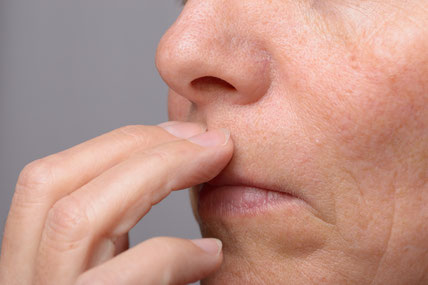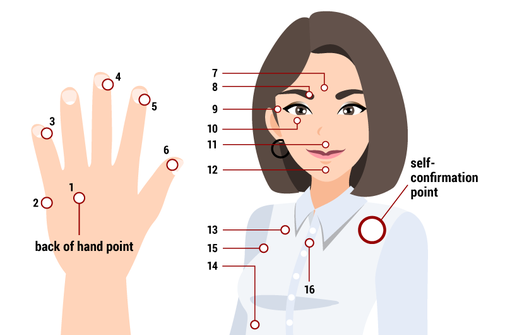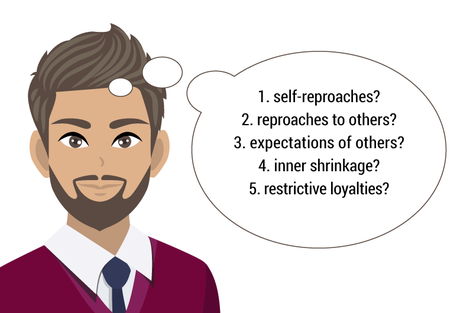PEP® / Tapping in Berlin - for success and self-worth in the blink of an eye
"Especially suitable for those who are in a hurry. The optimal method for success and self-worth in no time."
Have you found yourself in an emotional imbalance? Are you looking for a technique that works quickly? Perhaps there are issues that you are not aware of?
Then tapping with PEP® (process- and embodiment-focussed psychology) is just right for you.
Whether PEP® or EFT, TFT, EDxTM or MET... all have an immediate emotional relieving effect. Tapping for just one minute is often enough. PEP® is the method of choice for me: Dr Michael Bohne, the tapping technique pioneer of our time, created this method. His PEP tapping technique offers solutions when other methods no longer work (with the attitude of systemic counselling).
Dr Bohne integrates his tapping technique "PEP®" with other psychological approaches, whereby solution blockages can be uncovered and worked on. Dr Bohne and tapping are two inseparable concepts for me... because learning to tap according to the PEP® principle is efficient and sustainable!
Firstly, I will introduce you to specific areas of application for PEP® tapping, before going on to discuss aspects that you should definitely know about PEP®.
3 unbeatable reasons in favour of PEP®:
1. Quick relief (through tapping)
2. Uncovering unconscious blockages (KKT)
3. Humour and lightness (even with trauma and difficult issues)
"In words of Dr. Michael Bohne: PEP® is the contemporary further development of the "tapping technique" and combines insights from psychotherapy and psychology with aspects of neurobiology. In my office in Berlin, I will show you all the possibilities of PEP tapping - tapping technique, Bohne-like!"
Topics for your tapping therapy (PEP®) in Berlin

- Tapping technique for pain
- Post-traumatic stress (trauma), sadness, anger and aggression
- Tapping as a therapy for unconscious issues by working on solution blockages with the PEP tapping technique (Big-5 solution blockages)
- Tapping therapy as an effective method against depression
- Tapping therapy for active stress management (also for organizations)
- Transforming negative beliefs and relationship patterns into positive ones (only works with PEP tapping therapy according to Dr. Michael Bohne)
- Tapping therapy in crisis intervention
- Activation and strengthening of resources in the context of coaching or supervision
- Tapping as therapy for fears
"Even if the world ends... I take the space that I need."
"If you have specific questions about your particular issue, I am of course available to you as your PEP consultant in Berlin, without obligation, to discuss with you whether PEP,® tapping, as well as the associated possibilities to work on solution blockages, is the meaningful methods for your topic. The topics of self-worth and anxiety play a role for most people, which is why I briefly discuss below why PEP® can be used in these fields."
Tapping method for fears
Tapping therapy helps here as well. Anxiety is an emotion: Thus PEP®, which directly affects emotions, is the appropriate tapping technique for anxiety. Here, too, unconscious material can be recognized and processed, and all solution blockages can be eliminated. Thus, PEP® can be used in the context of a corresponding symptomatology as a fully comprehensive tapping technique against anxiety, which guarantees rapid success for those affected.
Examples:
- Forms of exam anxiety (e.g. job interviews, assessment centers, exams, etc.)
- Performance anxiety (stage fright at corporate events, meetings, music performances, major sporting events)
- Fear of flying
Tapping for more self-worth
The PEP tapping technique can be used especially for self-esteem issues. The tapping itself serves to keep arising emotions at a workable level. However, it is crucial that the occurring solution blockades (Big-5 according to Dr. Michael Bohne) are recognized and worked on. Thus, your self-esteem robbers, which you have carried around with you so far, will be transformed in such a way that they will no longer affect you negatively.
Performance Coaching
Basically all situations that literally or figuratively involve a stage are potential sources of excitement. Most of you know this, whether you're a musician, artist, executive, or speaker.... often you can't call up your actual skills just when it counts - and this is when you're the focus of attention.
The decisive factor for a good appearance or a good performance is that the competent parts and resources are activated and that you are focused accordingly. If this is not the case, the stage quickly becomes a place of danger.
To prevent this from happening, I, as your performance coach, analyze together with you which strategies you have "on board" with which you may be sabotaging yourself. Once you have identified these, they can be easily worked on. Subsequently, the old strategies are replaced by new strategies, so that you are equipped with a new mental strength. The approach is very similar to self-esteem training.
3 aspects play a crucial role in the process to increase well-being immensely:
- Increase in self-esteem
- Emotional stress regulation through tapping
- Training of the own attention focus
Before self-esteem can be increased, it is first necessary to identify the existing self-esteem robbers. These can usually be assigned to the following categories in performance coaching.
- Wanting to be good at all costs (perfectionism)
- Not finding oneself good (attribution style)
- Wanting to be found good (dependency)
- Inner shrinking (age regression)
- Unfavorable relationship to the "audience

PEP® / Knocking - What you absolutely should know
16 tapping points (e.g. for stress)

If one follows the historical development of the various tapping therapy points, one repeatedly comes across the hypothesis of the assumption of meridians, e.g. in the case of the physician George Goodheart, who originally discovered the effects of tapping on our psychological state. He was able to prove the effectiveness of tapping on these so-called tapping technique points, especially in the context of stress. Even traumatic stress can be reduced in this way. This finding was taken up by psychotherapists and integrated into their work. They also started from meridians and associated energy flows, as is also known in acupuncture. It becomes clear that in principle any kind of emotion can be reduced in intensity by tapping.
Dr. Michael Bohne summarizes alternative effect hypotheses of the tapping technique points in PEP® as follows:
- Neuro-hormonal effect hypothesis: self-touch results in the release of stress-reducing hormones as well as dopamine (= a happiness hormone).
- Increase in cortical blood flow: According to this hypothesis, the tactile stimulation of the tapping therapy points (e.g. fingertips and face) stimulates improved blood flow to the cerebral cortex.
- Self-soothing through self-touch: Studies have shown that memory performance increases as a result of self-touch.
- Neuro-biological approach: Brain regions that are associated with increased activity during anxiety (e.g. limbic system, amygdalae) are disturbed by the stimulation of the tapping points.
"You can see the corresponding tapping points in the figure. Anyone can apply this themselves and do it at home, in the toilet, in the office, and even on public transportation."
PEP®: tapping according to a fixed sequence pattern - 3 steps
- The emotion to be reduced must be activated by the client. This is achieved by the client focusing on the situation or topic with which the emotion is associated. It is important that this emotion is then actually perceptible (e.g. deep sadness).
- While focusing on the emotion on the one hand, the 16 above-mentioned tapping points are tapped in a certain order. These tapping technique points are effective even if certain tapping points are omitted, if one does not hit them exactly or if one uses a different order as a basis. However, PEP® gives a certain system.
- After the tapping therapy points have all been tapped, relaxation exercises such as eye movements, counting backwards and the humming of melodies take place, whereby various stimuli are sent to the brain on different channels, which according to Dr. Michael Bohne, among others, constitutes the effect of PEP® (cf. effect hypotheses).
"If you already have experience with conventional tapping methods, you will certainly have noticed that the tapping therapy points are not always equally effective or in some cases do not work at all. Here PEP® provides a remedy, in which the so-called Big-5 solution blockages are worked on. This is the decisive advantage of PEP®!"
Big-5 solution blockades (PEP® = tapping in connection with psychotherapeutic know how)
Whenever the tapping technique points alone do not show any effect, it is necessary to check whether there are solution blockages. These can be beliefs or ways of thinking that stand in the way of a solution. Mostly, however, relationship patterns play a role. Here the Big-5 give a good framework to uncover the most important blockages:
- Self-blame (Something you blame yourself for).
- External accusations (accusations that I make towards others)
- Expectations ( with which I make myself dependent on others)
- Age regression (feeling younger inside and not being able to access skills and resources)
- Para-/dysfunctional loyalty (an inner attachment to another person prevents one from moving forward)

PEP® offers simple and efficient approaches to efficiently work through all solution blockages. Thus, you may find that in just one session, you will resolve blockages that have been with you for a lifetime. This speed makes PEP tapping unique."
KKT (engl.: CCT) - Working on the Unconscious with the Cognitive Congruence Test
It is often the case that solution blockages remain undiscovered at first because people are not aware of their obstructive issues. The so-called KKT is an optimal way to access this unconscious content. The client speaks sentences (e.g. "My mother allows me to lead a happy and successful life") and immediately receives a physical reaction (embodiment), which shows that in this case the topic of mother needs to be looked at more closely.
"PEP - tapping with methods and tools that together provide a fully comprehensive counseling tool: Negative emotions are reduced through the tapping points. Psychological blockages are efficiently processed by the Big-5. And if unconscious issues play a role, KKT makes them visible. Self-esteem training (see above) can be optionally integrated."

For the theorists among you - history and origin
Energetic Psychotherapy / Energetic Psychology
Energetic psychology (or energetic psychotherapy) prescribes itself to the self-conception of a process-oriented form of treatment. This is based on the assumption of an energy system in the body, as it is also known in acupuncture. This energy system can have different effects on our physical and mental health. If the energy in the body can flow freely and unhindered and there are no internal / mental blockages, the effects are positive and thus conducive to health. Following the reverse logic, physical problems, symptoms or even diseases mean that the underlying energy system of the body is disturbed and energies can no longer flow freely and unhindered. As a consequence, healing is understood as the dissolution of these inner blockages, for which Energetic Psychology provides various methods. The tapping techniques can be assigned to Energetic Psychology in their historical development, since their mode of action was initially based on the meridians, the energy points of acupuncture.
"The terminology of Energetic Psychology was first coined by Fred Gallo and Gary Craig, who designed therapeutically applicable concepts that also influence today's tapping technique PEP® according to Dr. Michael Bohne. After Craig, the EFT method in particular became famous, which still plays a major role in today's practice."
EFT - tapping according to this method is the basis of PEP®
I personally see the EFT tapping technique as a predecessor or basis of process and embodiment-focused psychology. Tapping is also used in EFT to work on emotions and challenging life issues, so that here too one can certainly speak of EFT tapping therapy. Tapping / EFT are therefore inseparable terms for me, although this method is not yet fully comprehensive compared to the concepts of Dr. Bohne. Nevertheless, EFT tapping therapy has created a milestone in the historical development of Energetic Psychology.
EFT Tapping Points
The EFT tapping points are very similar to those used in other tapping techniques. However, tapping is often done on the top of the head, at the so-called apex. Otherwise, the tapping points of EFT are almost identical to those of PEP®, which is why second can be understood as an extension and development of EFT, since the processing of unconscious material and solution blockages is also integrated.
About the term EFT - Emotional Freedom Technique
EFT is an abbreviation and stands for Emotional Freedom Technique. As already described, it is based on the work of Gary Craig. Like PEP®, Emotional Freedom Technique is a method based on a standardized tapping system. Emotions associated with a particular stressful issue are to be released from the body. In other words, the body is freed from such emotions. This explains the name EFT - Emotional Freedom Technique. In terms of implementation, EFT is also a technique that the person can apply him/herself.
... problems are solutions !!!

